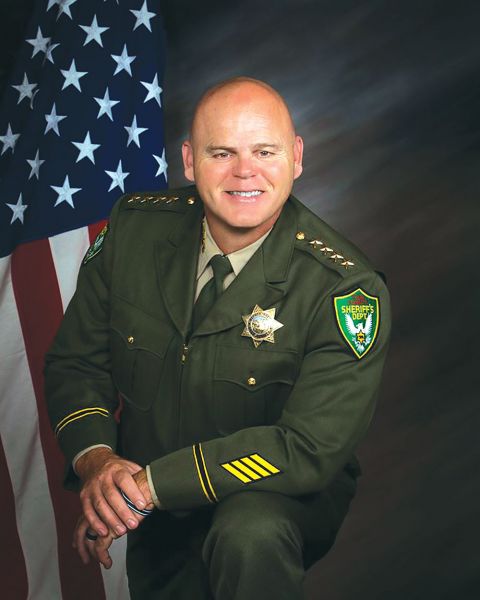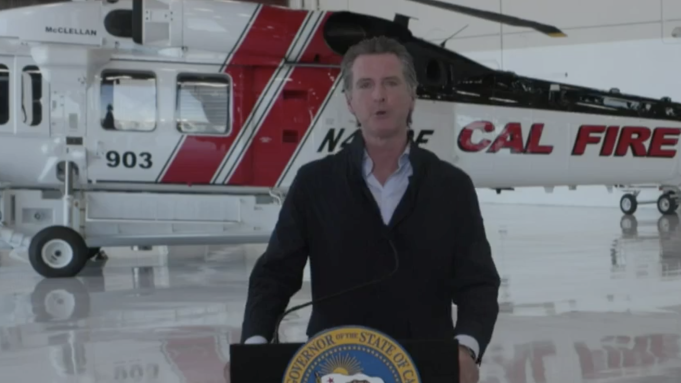
State Senator Scott D. Wiener. (Photo: Kevin Sanders for California Globe)
SB 314 Allows Alcoholic Beverage Sales to Continue Under COVID Emergency Order
Creates more flexibility in how bars, restaurants and retailers can serve alcohol
By Chris Micheli, October 8, 2021 2:16 pm
On October 8, 2021, Governor Gavin Newsom signed into law Senate Bill 314 by Sen. Scott Wiener (D-San Francisco). The bill takes effect today upon the Governor’s signature because it contains an urgency clause.
Section One of the bill provides four legislative findings and declarations that the COVID-19 pandemic has had a huge financial impact on restaurants, bars, retailers, and small businesses throughout the state, including sidewalk vendors who are only now beginning to return to local streets, boardwalks, and piers. Existing law established a statewide framework for the local regulation of sidewalk vendors to sell food or merchandise.
In addition, the Legislature finds and declares that this measure should not unintentionally roll back existing protections given to these micro-businesses under the existing sidewalk vendor law, create additional restrictions, limitations, or requirements on local sidewalk vendors, or limit any local authority from creating, maintaining, and enforcing a local sidewalk vendor program.
Section Two of the bill amends Business and Professions Code Section 23399 to prohibit a catering authorization from being issued for use at any one premise for more than 36 events in one calendar year, except when the department determines additional events may be catered to satisfy substantial public demand.
Section Three of the bill amends Business and Professions Code Section 25607 to specify that a licensed manufacturer may share a common licensed area with multiple licensed retailers subject to specified conditions.
First, no retail licensee sharing the common licensed area with a licensed manufacturer is permitted to sell or serve any alcoholic beverages that are manufactured, produced, bottled, processed, imported, rectified, distributed, represented, or sold by the manufacturer, directly or indirectly.
Second, the licensed manufacturer may, in connection with the operation of the shared common area only, advertise or promote the common licensed area including, but not limited to, any advertising or promotion related to the licensed retailers sharing the common licensed area, provided that each retailer pays its pro rata share of the costs of that advertising or promotion.
Third, the licensed manufacturer may, in connection with the operation of the shared common area only, pay its pro rata share of the cost of the operation of the shared common area including, but not limited to, the cost of renting, utilities, or any other operating costs for the area.
Fourth, no other thing of value may be given or furnished by the manufacturer to the retailers.
Fifth, the manufacturer may have on the area of its licensed premises that encompass the shared common licensed area alcoholic beverages that would not otherwise be permitted on the manufacturer’s licensed premises.
Sixth, all retailers sharing the common licensed area must hold the same license type.
Seventh, all licensees holding licenses within the shared common licensed area will be jointly responsible for compliance with all laws that may subject their license to discipline.
Eighth, a wholesaler does not directly or indirectly underwrite, share in, or contribute to any costs related to the common licensed area.
Ninth, the manufacturer maintains records necessary to establish its compliance with this section.
Tenth, this subdivision does not authorize a licensed manufacturer to share a common licensed area with a single retailer or with multiple retailers under common ownership, in whole or in part.
In addition, this new section of law is intended to be a narrow exception to the separation of manufacturers and retailers and should therefore be narrowly construed. Finally, the subdivision includes two legislative findings and declarations that it is necessary and proper to require a separation between manufacturing interests, wholesale interests, and retail interests in the production and distribution of alcoholic beverages.
Section Four of the bill adds Section 25750.5 to the Business and Professions Code to provide for a period of 365 days following the end of California’s state of emergency for the pandemic that the Department of Alcoholic Beverage Control (DABC) may permit licensees to exercise privileges in an expanded license area. The state of emergency was first issued by Governor Newsom on March 4, 2020 in response to COVID-19.
The expanded license area is authorized by a COVID-19 Temporary Catering Authorization approved in accordance with the Fourth Notice of Regulatory Relief issued by the DABC on May 15, 2020. A COVID-19 Temporary Catering Authorization authorizes the on-sale consumption of those alcoholic beverages for which the licensee has on-sale privileges on property that is adjacent to the licensed premises and that are under the control of the licensee.
Pursuant to this new law, the DABC may extend the period of time during which the COVID-19 Temporary Catering Authorization is valid beyond 365 days if the licensee has filed a pending application with the DABC for the permanent expansion of their premises before the 365-day time period expires.
The COVID-19 Temporary Catering Authorization is still subject to cancellation by the DABC on several grounds, such as objection by local law enforcement or if operation of the temporarily authorized area is inconsistent with state or local public health directives. In addition, if the DABC determines that any licensee is found to be abusing the relief provided by this law, or if the licensee’s actions jeopardize public health, safety, or welfare, the DABC may summarily rescind the relief as to that licensee at any time.
Finally, this new section of law remains in effect through July 1, 2024 and thereafter is repealed.
- Death Deeds in California - February 27, 2026
- Sources of Law - February 26, 2026
- Commercial Fishing - February 26, 2026





Anyone notice a trend that most of Weiner’s legislation involves substances used to numb the pain of his obviously tortured soul and life???
This guy obviously is in need of psychiatric help….
The Democrats must be getting the DT’s. They need their little helper.
The legislature cant think of anything better to do than regulate the use of condoms and make sure people can still get their drinks delivered.
If this is all they can think about doing then maybe the “state of emergency” is over and we should all just get back to business as usual.
Beyond disgusted with these people.
No doubt Democrat Sen. Scott Wiener pushed Senate Bill 314 so that he could continue getting liquored up while looking for debauchery in San Francisco? Be wary of Harvard trained lawyers from the east coast?